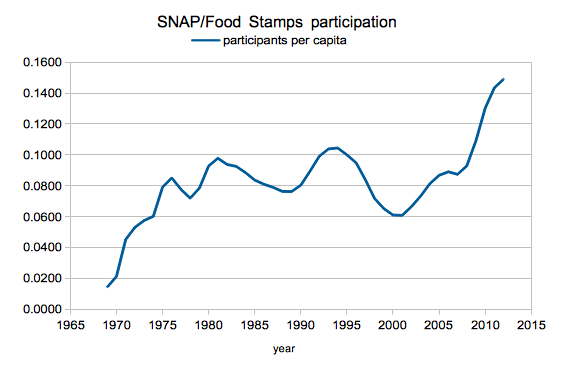During the first George W. Bush presidency, I began to notice a real gap between reality and "reality as described by politicians". That gap was always there, of course, but earlier in my life, I think it was more easily-discerned than it is now. The first example that was obvious to me was the fiction that the US invasion of Iraq in 2003 had something (anything!) to do with Al Qaeda. The administration, aided by a number of commentators, most notably from Fox News, very effectively made that link in many people's minds, in spite of being forced to explicitly deny that such a link existed.
This blog exists as a place to dump data, mostly. Opinions are easily debated, and are certainly debatable, but the actual facts should not be in question--and in today's news environment, they often are. While I hold political opinions, they're mutable, and should be mutable--they should change if the available data show they aren't good, informed, logical opinions. The data should drive them, not some random ideas held together with the opinions of others. Naturally, what I post here will be influenced by my opinions, but I have never been afraid of opposing data, and indeed, I have often changed my position in response to data. I challenge you to oppose my data with better data, or a more insightful presentation of the data.
It is only when we agree on facts that we can have fruitful discussions of policy.


